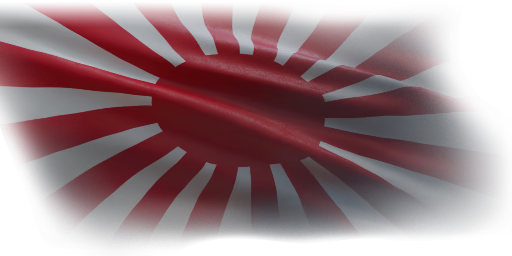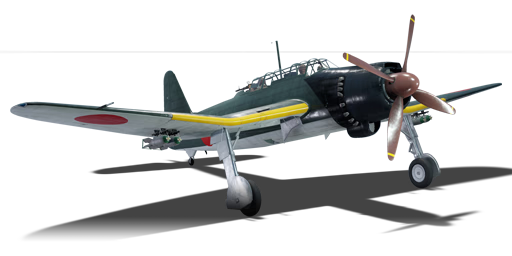


The B7A2 (Homare 23) was a prototype to test the new Homare 23 engine on the B7A2 which boasted 200 hp more than the Homare 12 installed on the production line of the B7A2. Other than the engine, the fuselage, wings, and armament haven't changed resulting in an enhanced B7A2 which wasn't able to be mass-produced.
The Ryusei (Homare 23) was introduced in Update "La Royale" as a reward for Battle Pass: Season XII, "Armour Breaking Ambusher". Like its previous production model, the B7A2, it's deceivingly manoeuvrable and has an even stronger engine for the same plane, still lacking any real armour. It can bite back with its defensive 13 mm machine gun or engage frontally with two wing-mounted Type 99 Model 2 cannons. While technically classified as a carrier-borne torpedo bomber, it is very capable of fulfilling the roles of dive-, level-, and torpedo bombing targets. While the max tonnage of bombs doesn't increase over the previous B6N Tenzan, it can carry four additional wing-mounted 60 kg bombs next to its bomb bay that can load two 250 kg or six 60 kg. The main playstyle of the B7A2 is more like an unarmoured attacker, using its arsenal of bombs and cannons on targets either in the sky, on the ground, or on the sea with the deadly precision of its gyrostabilized dive-bomber sight.
flaps
flaps
flaps
brake
| Belt | Belt filling | Armor penetration (mm) at a distance: | |||||
|---|---|---|---|---|---|---|---|
| 10 m | 100 m | 500 m | 1000 m | 1500 m | 2000 m | ||
| T/FI/FI/APHE | 26 | 24 | 17 | 10 | 6 | 4 | |
| HEF-T/HEF/HEF/APHE | 26 | 24 | 17 | 10 | 6 | 4 | |
| APHE/APHE/APHE/APHE/HEF/HEF-T | 26 | 24 | 17 | 10 | 6 | 4 | |
| HEF-T | 4 | 4 | 4 | 4 | 4 | 4 | |
| HEF/HEF/HEF/APHE/APHE | 26 | 24 | 17 | 10 | 6 | 4 | |
| Belt | Belt filling | Armor penetration (mm) at a distance: | |||||
|---|---|---|---|---|---|---|---|
| 10 m | 100 m | 500 m | 1000 m | 1500 m | 2000 m | ||
| I/AP-T/HEF-T/T/HEF-I | 18 | 16 | 9 | 5 | 3 | 1 | |
| T/AP-T/AP-T/AP-T/I | 18 | 16 | 9 | 5 | 3 | 1 | |
| AP-T/HEF-T/HEF-I/HEF-T/T | 18 | 16 | 9 | 5 | 3 | 1 | |
4 × 60 kg Navy Type 97 Number 6 ground bomb







 2 x (90 / 190 / 325) %
2 x (90 / 190 / 325) % 
 2 x 148 %
2 x 148 % 

Flight performance | |
|---|---|
Survivability |
|---|
Weaponry | |
|---|---|